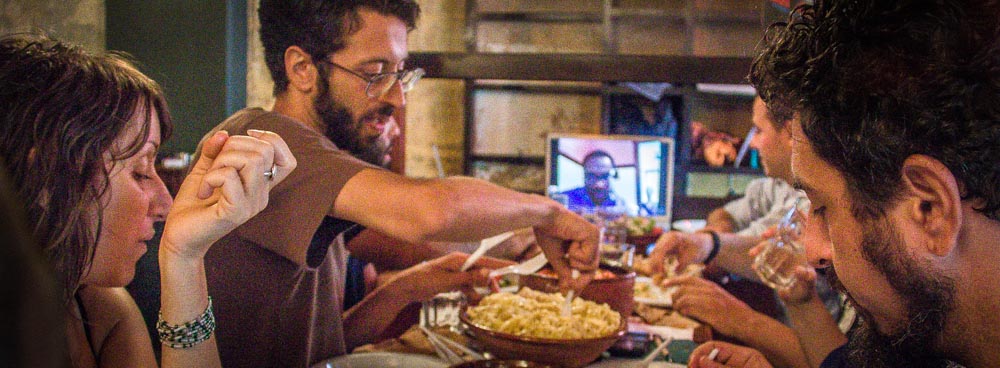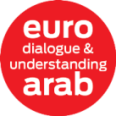The Virtual Dinner Guest Project is a Middle East-based international multimedia initiative born from a very simple premise: It is harder to ignore, vilify or harm those with whom we have broken bread.
Mission: To spearhead a global cultural shift in the way people view their relationship to news media, from one of passive consumption, to one of collaborative production, between local communities, on a global scale. Their combination of small group discussions with alternative media production is directed specifically at the Transformation of Conflict and the promotion of Intercultural Education.
The Method: Break bread together. Create media together. Recruit the world.
The Virtual Dinner Guest Project has connected communities in 14 countries, across 5 continents, and has been featured in English, Arabic, French, and Swedish publications and television reports.
Impact is three-tiered, (1) rooted in the intimacy of small group discussions, we then challenge our participants to (2) film and document the voices of their local communities, and then (3) share their short documentaries online to engage and educate the global community. Previous university collaborations have spanned a broad array of disciplines, ranging from graduate-level courses in Journalism, to Political Science and Anthropology.
The Process: Videoconferencing is used to connect people in two countries for two moderated discussions, over a shared meal. The focus is on connecting communities in conflict, or communities who share a similar set of social, cultural or political challenges. In between the two Virtual Dinner encounters guests will complete a street-media film project.
The aim of these parallel film projects is to highlight under-represented voices from within each of our participating communities, and then share them with one another. We cannot effectively represent our communities if we fail to engage with all of their disparate elements. This means that street interviews are conducted in the local language, and with those who are typically overlooked by the media and the more socially empowered communities. These short films are then posted online so that our findings can be shared with a global audience, dually serving as an organic, social media-driven, recruitment tool for attracting more participants.
When the films are completed and shared, participants then return for one more Virtual Dinner. At this final encounter, participants debrief and strategize avenues for future collaboration. Our Virtual Dinner alums are then given the opportunity to continue their involvement with the greater Virtual Dinner Guest Project community through our social media forums. Collaborating professors and administrators are invited to help the crew institutionalize the VDG Project at their university.


